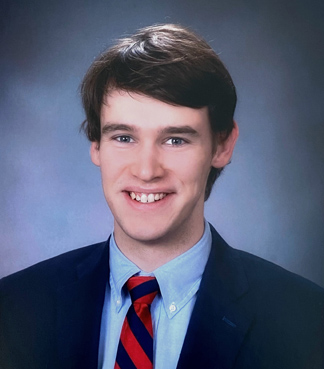
Hometown: Philadelphia, Pa.
Undergraduate: University of Pennsylvania, BA in Biological Basis of Behavior
Graduate: University of Pennsylvania, MSE in Engineering Biotechnology
Can you tell me a little bit about yourself before you came to Drexel?
I completed my undergraduate degree in neuroscience and my master’s in Engineering Biotechnology at the University of Pennsylvania. At Penn I was heavily involved in research on brain-computer interfaces. This included implantable electronic devices which can help restore normal functioning in patients with diseases such as epilepsy, Parkinson’s Disease and even paralysis. I also minored in Healthcare Management at the Wharton School. My interest in combining medicine and bioengineering to help improve patient care led me to continue my education at Penn with a master’s in Engineering Biotechnology before starting medical school.
What drew you to medicine in general, and to the College of Medicine specifically?
My neurosurgery research provided me with a unique chance to interact with patients and clinicians at the Penn Epilepsy Center in the clinic setting, the operating room, and the inpatient hospital, working side-by-side with doctors and clinical staff. Clinical research has allowed me to witness the ways cutting-edge medicine can provide hope, relief, and new possibilities in life for patients suffering from conditions which have resisted all previous attempts at treatment. This experience demonstrated to me how the physician-scientist is best positioned to both advance medical knowledge and bring those advances into practice. I look forward to building a career that combines research and patient care.
Drexel’s mission matches closely with my own goals in pursuing medicine: to expand access, provide outstanding patient care, and simultaneously advance research. As a lifelong resident of the Philadelphia region, I was drawn to Drexel’s goals of continually improving clinical medicine and providing the best possible health care to all patients.
How did your undergraduate and graduate experiences prepare you for medical school?
My education at the University of Pennsylvania in neuroscience, translational therapeutics and clinical research provided me with an excellent foundation for medical school. Additionally, my studies at Wharton in the economic, legal and social factors of health care delivery have allowed me to critically analyze the systems of the medical field and place them in a broader context.
As I completed my master’s in Engineering Biotechnology in the early days of the COVID-19 crisis, I noted the words of faculty who emphasized how the graduating class was uniquely equipped to tackle the challenges of the pandemic. My advanced engineering education combined with my research experience provide me with a set of tools to create concrete impacts on the health crises we continue to face. Topics I studied – like antibody testing, vaccines and health care management – have become household words and crucial issues in our present time. In my bioengineering training, I learned to bring an innovative approach to problem-solving in the medical field. I look forward to the opportunity as a physician to join in overcoming whatever challenges to human health we may confront in the future.
What organizations, extracurriculars, research or community service experiences have you been involved in at Drexel? How have they impacted your experience here?
I have felt completely welcomed and supported by Drexel’s faculty, students and staff, who have all displayed remarkable resilience and ingenuity in carrying on the mission and community of the College of Medicine despite the challenges of the pandemic.
I have joined a team with DrExcel Health, which builds cross-campus collaborations in biotechnology between students in the College of Medicine and in Drexel’s School of Biomedical Engineering. This organization was a perfect match for my interdisciplinary background in medicine and biotechnology. In this program, I am able to provide mentorship to undergraduate engineering students completing senior projects, while also expanding my own experience and skills with product design and bioengineering.
Through the College of Medicine’s Health Advocacy Program, I am volunteering with Together for West Philadelphia, an organization which seeks to foster collaboration between community resources and connect individuals in need with the right services. Much of our work involves contacting and communicating with community members to assess the resources that will best address their unique needs. I have found it particularly exciting to be a part of the Together for West Philadelphia team at this time; we are actively expanding our outreach and helping to mitigate the effects of COVID-19 on the social determinants of health in the community. It is rewarding that medical students have been able to take an active role in shaping the future of the organization and to positively impact the community we serve.
I also am enjoying being a member of the College of Medicine’s a cappella group, Doctor’s Note, which gathers virtually to practice every week. Creating music together online has been a great way to meet and connect with other students.
What advice would you give incoming medical students?
Medical school will constantly challenge you. Amid this ongoing effort, you must remind yourself of the important reasons that you have taken on this challenge. As I reflect on the efforts of physicians and the role of doctors leading our national response to this pandemic, the immeasurable value that the medical profession provides to our society becomes strikingly evident. Observing medical professionals’ hard work and dedication as they combat the unprecedented threat has strengthened my own motivations. I look forward to contributing my passion for scientific innovation and commitment to human-focused health care, as I take on the responsibilities of becoming a physician.